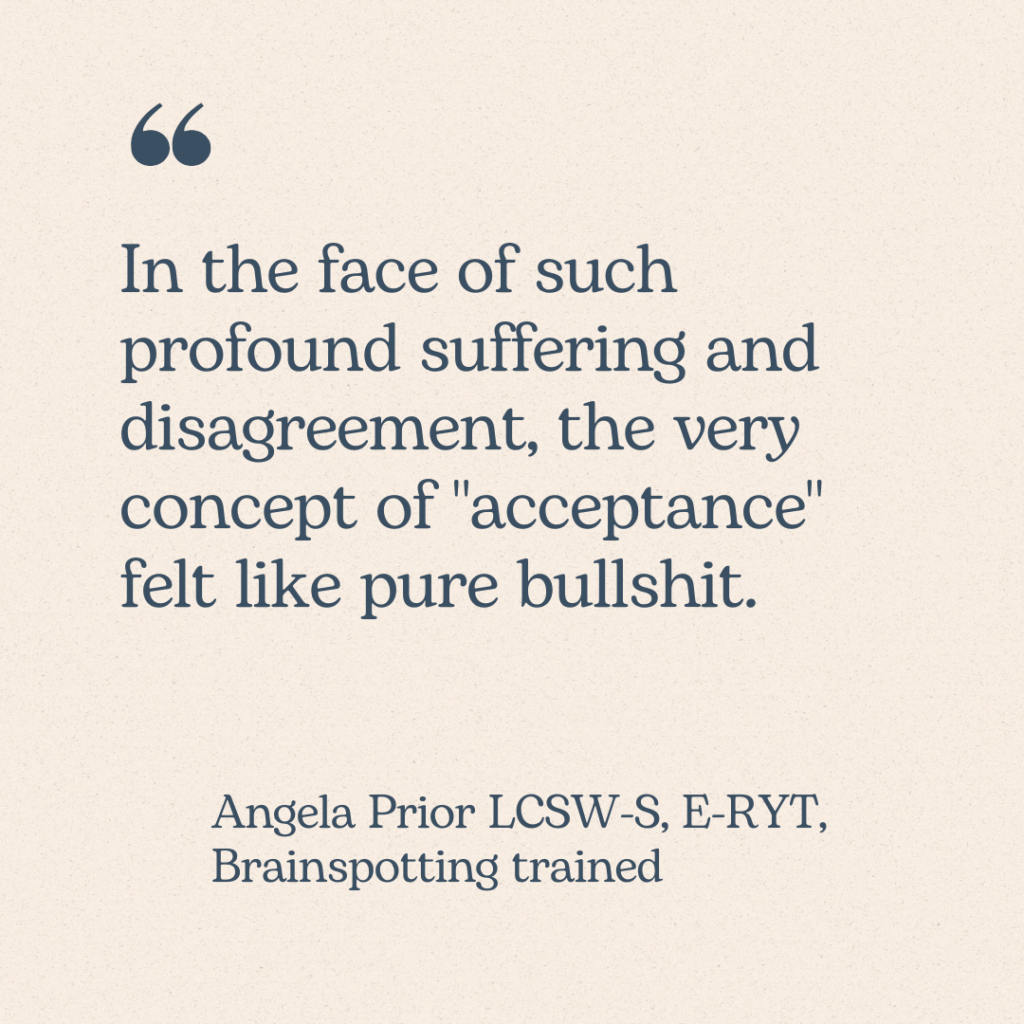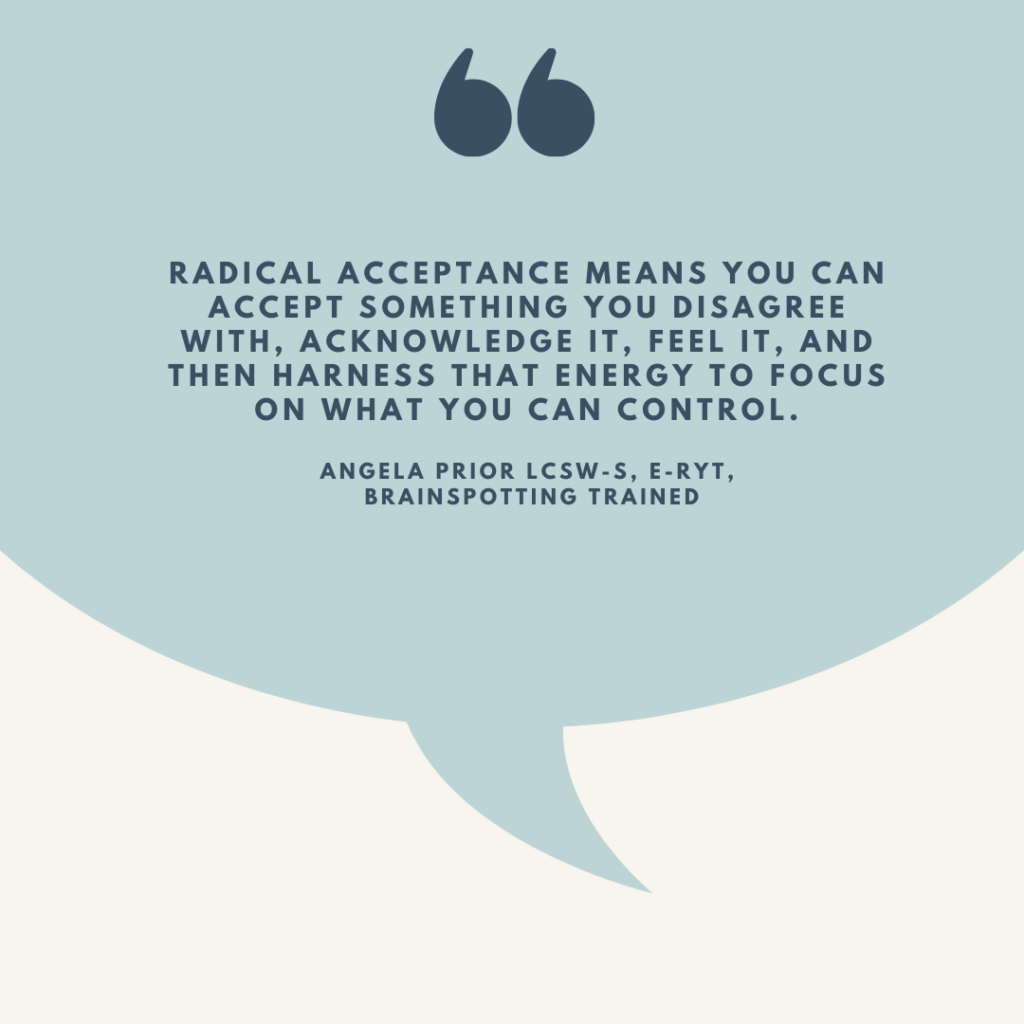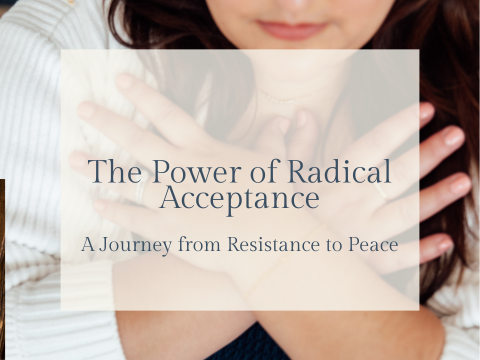Angela Prior
lcsw, ryt, ciec
hey there!
The AP blog is here for all things mental health, embodiment, yoga, and burnout. Poke around and take what you need.
meet angela
The Power of Radical Acceptance
July 28, 2025
I’ve been thinking a lot lately about radical acceptance; what is radical acceptance and what isn’t. It’s a concept that truly clicked for me back in 2015 when I first picked up Tara Brach PhD’s “Radical Acceptance: Embracing Your Life with the Heart of a Buddha.” I remember sitting in bed, utterly captivated. With every page, it felt like a series of “Aha!” moments, a true awakening. I couldn’t put it down. Brach was articulating something I had always wrestled with when it came to the idea of acceptance.
The Acceptance Dilemma: When “Acceptance” Felt Like Bullshit

In both my personal and professional life, I had encountered too much injustice, too much heartache, too many terrible things happening. In the face of such profound suffering and disagreement, the very concept of “acceptance” felt like pure bullshit. How could I possibly accept something that felt so terrible, something I so strongly disagreed with? How could I protect my peace and non-attachment when I was hurt, angry, and flat-out opposed to a situation?
Back in 2015, I didn’t have the language of spiritual bypassing or toxic positivity in my vocabulary. I just knew there was a crucial missing piece whenever I tried to find acceptance or even dared to broach the topic with clients. Something wasn’t quite right.
The Missing Piece: Understanding Radical Acceptance
Then came Brach’s profound explanation of what is radical acceptance. It’s about fully and completely accepting reality as it is, without judgment or resistance. It’s acknowledging what you cannot change and choosing to embrace the present moment, even if it’s painful or unwanted. This doesn’t mean you have to like or approve of the situation, but rather that you recognize its reality.
And here’s the part that felt like the missing piece sliding perfectly into place for me:
Radical acceptance means you can accept something you disagree with, acknowledge it, feel it, and then harness that energy to focus on what you can control.

By accepting what we cannot change, we’re able to redirect our energy towards what is within our control. This cultivates resilience, promotes emotional well-being, and ultimately empowers us to create positive, real change. That is what radical acceptance is
Time and time again, through continued life experiences, I’ve felt the power and truth in this concept. I can radically accept what I don’t like or agree with. I can be fully present in my moment without running from it, and that presence gives me the power to identify what I can control and then actually make a difference.
Ready to get started exploring radical acceptance?
Our podcast covers the concept of Radical Acceptance and it’s role in recovery and yoga

eight free meditations
To Support Your Mental Health
Let's Work Together
Meet Our Team of Therapists + Yoga Instructors